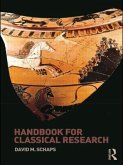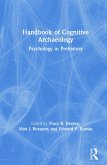First published in 1989, On Psychological Language and the Physiomorphic Basis of Human Nature was written to provide a new and controversial analysis of the nature of psychological language.
The book argues that psychological concepts of all kinds are ultimately derived from concepts about the external world, so that 'human nature' is nothing more than 'internalized Nature'. It draws attention to problems regarding the nature of linguistic reference, and puts forward a route for considering human psychological evolution, raising questions about the nature of psychology as a discipline and its relationship with the physical sciences. This 'physiomorphic theory' challenged ways of thinking about psychological language at the time of original publication.
Interdisciplinary in its approach, On Psychological Language and the Physiomorphic Basis of Human Nature has enduring relevance for those with an interest in psychology, anthropology, philosophy, and linguistics.
The book argues that psychological concepts of all kinds are ultimately derived from concepts about the external world, so that 'human nature' is nothing more than 'internalized Nature'. It draws attention to problems regarding the nature of linguistic reference, and puts forward a route for considering human psychological evolution, raising questions about the nature of psychology as a discipline and its relationship with the physical sciences. This 'physiomorphic theory' challenged ways of thinking about psychological language at the time of original publication.
Interdisciplinary in its approach, On Psychological Language and the Physiomorphic Basis of Human Nature has enduring relevance for those with an interest in psychology, anthropology, philosophy, and linguistics.








